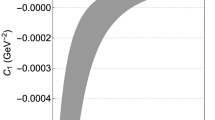Conclusions
Dirac’s philosophy of mathematical elegance led to his pioneering work on magnetic monopoles and inspired a large number of subsequent developments. It remains true that magnetic monopoles have never been detected, despite numerous attempts, but after all it was Dirac who once remarked, “It is more important to have beauty in one’s equations than to have them fit experiment”. One might therefore assume that he was more than satisfied with the impact of this work.
This is not quite the case. Towards the end of his life, the complete lack of experimental evidence for magnetic monopoles began to weigh on him. In 1981, a year short of his 80th birthday, he was invited to Trieste for a conference to commemorate the 50th anniversary of his monopole paper. He declined the invitation due to the strain of travelling, but sent a letter of thanks to Abdus Salam, the Nobel Laureate and Director of the Centre at Trieste. In this letter, Dirac wrote: “I am inclined now to believe that monopoles do not exist. So many years have gone by without any encouragement from the experimental side.”
Dirac passed away nearly two decades ago, but it remains to be determined who was right about monopoles: Dirac in 1931, or Dirac in 1981.
Similar content being viewed by others
Author information
Authors and Affiliations
Rights and permissions
About this article
Cite this article
Mukhi, S. Dirac’s conception of the magnetic monopole, and its modern avatars. Reson 10, 193–202 (2005). https://doi.org/10.1007/BF02835143
Issue Date:
DOI: https://doi.org/10.1007/BF02835143




